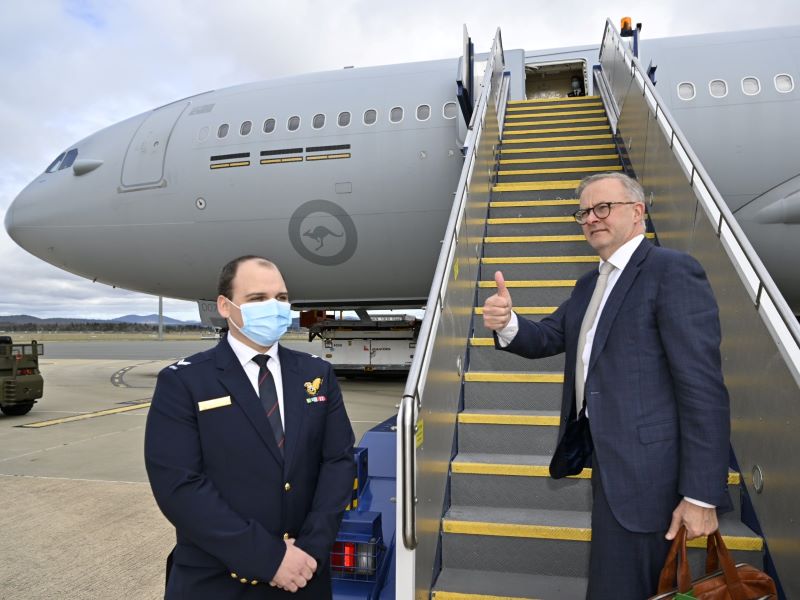Australian science groups have welcomed a new Labor government and will push it for greater recognition of the science portfolio in its next ministry. With an announcement on the ministry not expected this week, the portfolio’s placement and leader is up in the air.
Peak groups want science recognised as a driver of industry, education, climate solutions, and Labor’s $15 billion ‘National Reconstruction’ plan, and on Monday backed several candidates as potential science portfolio leaders.

In Opposition, deputy Labor leader Richard Marles held science along with national reconstruction, employment, skills and small business.
Mr Marles was an advocate for science in Opposition, co-chairing the last Parliamentary Friends of Science group and described science commercialisation as “the single most important piece of micro economic reform” facing Australia.
But as deputy leader, Mr Marles can pick his portfolio, according to the ABC, and there are reports he wants to return to defence.
Ed Husic, who was shadow minister for industry and innovation, is a likely candidate to keep science in its traditional home alongside the industry portfolio.
But Labor has also had science in a Tertiary Education, Skills, Science and Research portfolio in the Gillard Government. A similar approach could see Tanya Plibersek gain responsibility this time.
Unexpected election losses for Labor’s Kristina Keneally and Terri Butler may have also opened up a larger reshuffle of the frontbench than anticipated, further complicating the mix.
When asked about potential science portfolio leaders, Australian Academy of Technology and Engineering chief executive Kylie Walker described Mr Marles as a “long-term champion for science” and Mr Husic as an “excellent advocate in the technology and innovation space”.
She also noted South Australian MP Amanda Rishworth had co-founded the Parliamentary Friends of Women in STEM.
“Of course, these are only three of many,” Ms Walker told InnovationAus.com
“ATSE is a strong believer that diversity must play a major role across all portfolios, including science, to enable a wide range of perspectives and expertise are considered and implemented when developing policies and setting priorities.
“Science will be at the core of all major challenges being faced nationally and globally. Australia will benefit most from champions who will ensure that the evidence, knowledge and solutions presented by scientific research and application have a place in the Federal Cabinet.”
Ms Walker said this omnipresence of science should also be considered in the placement and importance of the portfolio.
When the Coalition came to power in 2013, the Abbott Government elected not to have a science minister for the first time since the portfolio’s creation in 1931. Backlash saw the portfolio return, and it has since sat alongside Industry under a rotation of Coalition ministers.
The exception, and where science last sat, was the Morrison Government’s Science and Technology portfolio created in October as part of a carve up of the Industry portfolio for Melissa Price.
“The most important consideration in deciding where Australia’s science portfolio sits should be ensuring access to STEM sector expertise to tackle our most urgent challenges,” Ms Walker said.
“ATSE encourages the incoming Government to break down existing silos between sectors to enable cross-industry collaboration that informs all areas of policy.”
Ms Walker said there had been “growing respect” for scientific opinion in government in the last 20 years, and climate change and the pandemic had underscored the value of scientific expertise in decision making.
“Climate is without a doubt going to be the biggest priority for the incoming government,” Ms Walker said.
“While science plays a central role in solving this challenge after decades of inaction, addressing climate change must include solutions from and for every sector. Labor’s commitment to a 43% reduction by 2030 is an improvement on past promises, but urgent and ambitious action is needed now to scale renewable technologies and electric vehicles, and to offer a public, clear, and accountable plan to urgently reach net zero emissions.”
The Australian Academy of Science declined to weigh in on individuals or portfolio placement but also backed the recognition of evidence based policy, which it said had been reflected in Saturday’s vote.
“The Australian Academy of Science look forwards to demonstrating to the Prime Minister and his Ministry how R&D can be a driver of productivity to assist economic growth and to provide the expert scientific advice critical to address the many current challenges facing our community,” an Academy spokesperson told InnovationAus.com.
“Given the priorities that Australians have expressed through their vote, the Academy looks forward to providing independent scientific advice and bringing evidence to inform the Government’s policy agenda.”
Do you know more? Contact James Riley via Email.

